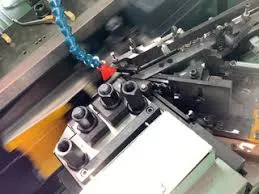
-
 Afrikaans
Afrikaans -
 Albanian
Albanian -
 Amharic
Amharic -
 Arabic
Arabic -
 Armenian
Armenian -
 Azerbaijani
Azerbaijani -
 Basque
Basque -
 Belarusian
Belarusian -
 Bengali
Bengali -
 Bosnian
Bosnian -
 Bulgarian
Bulgarian -
 Catalan
Catalan -
 Cebuano
Cebuano -
 Corsican
Corsican -
 Croatian
Croatian -
 Czech
Czech -
 Danish
Danish -
 Dutch
Dutch -
 English
English -
 Esperanto
Esperanto -
 Estonian
Estonian -
 Finnish
Finnish -
 French
French -
 Frisian
Frisian -
 Galician
Galician -
 Georgian
Georgian -
 German
German -
 Greek
Greek -
 Gujarati
Gujarati -
 Haitian Creole
Haitian Creole -
 hausa
hausa -
 hawaiian
hawaiian -
 Hebrew
Hebrew -
 Hindi
Hindi -
 Miao
Miao -
 Hungarian
Hungarian -
 Icelandic
Icelandic -
 igbo
igbo -
 Indonesian
Indonesian -
 irish
irish -
 Italian
Italian -
 Japanese
Japanese -
 Javanese
Javanese -
 Kannada
Kannada -
 kazakh
kazakh -
 Khmer
Khmer -
 Rwandese
Rwandese -
 Korean
Korean -
 Kurdish
Kurdish -
 Kyrgyz
Kyrgyz -
 Lao
Lao -
 Latin
Latin -
 Latvian
Latvian -
 Lithuanian
Lithuanian -
 Luxembourgish
Luxembourgish -
 Macedonian
Macedonian -
 Malgashi
Malgashi -
 Malay
Malay -
 Malayalam
Malayalam -
 Maltese
Maltese -
 Maori
Maori -
 Marathi
Marathi -
 Mongolian
Mongolian -
 Myanmar
Myanmar -
 Nepali
Nepali -
 Norwegian
Norwegian -
 Norwegian
Norwegian -
 Occitan
Occitan -
 Pashto
Pashto -
 Persian
Persian -
 Polish
Polish -
 Portuguese
Portuguese -
 Punjabi
Punjabi -
 Romanian
Romanian -
 Russian
Russian -
 Samoan
Samoan -
 Scottish Gaelic
Scottish Gaelic -
 Serbian
Serbian -
 Sesotho
Sesotho -
 Shona
Shona -
 Sindhi
Sindhi -
 Sinhala
Sinhala -
 Slovak
Slovak -
 Slovenian
Slovenian -
 Somali
Somali -
 Spanish
Spanish -
 Sundanese
Sundanese -
 Swahili
Swahili -
 Swedish
Swedish -
 Tagalog
Tagalog -
 Tajik
Tajik -
 Tamil
Tamil -
 Tatar
Tatar -
 Telugu
Telugu -
 Thai
Thai -
 Turkish
Turkish -
 Turkmen
Turkmen -
 Ukrainian
Ukrainian -
 Urdu
Urdu -
 Uighur
Uighur -
 Uzbek
Uzbek -
 Vietnamese
Vietnamese -
 Welsh
Welsh -
 Bantu
Bantu -
 Yiddish
Yiddish -
 Yoruba
Yoruba -
 Zulu
Zulu
Hydraulic Thread Rolling Machine Cost and Supplier Information
An Overview of Hydraulic Thread Rolling Machine Price and Suppliers
Hydraulic thread rolling machines have become indispensable in various manufacturing sectors due to their ability to produce high-quality threads efficiently and with minimal waste. These machines utilize hydraulic pressure to roll threads onto cylindrical objects, which improves the overall strength of the threads compared to traditional cutting methods. As industries continue to evolve and seek efficient production methods, understanding the pricing of these machines and identifying reliable suppliers are critical for businesses.
The Importance of Hydraulic Thread Rolling Machines
Hydraulic thread rolling machines offer several advantages over conventional threading techniques. They provide superior precision, increase production rates, and reduce the likelihood of defects. Additionally, because thread rolling is a cold working process, it enhances the material properties of the workpiece, resulting in stronger threads. This combination of factors makes hydraulic thread rolling machines ideal for industries such as automotive, aerospace, and manufacturing.
Factors Influencing the Price of Hydraulic Thread Rolling Machines
The price of hydraulic thread rolling machines can vary significantly based on several key factors
1. Machine Specifications The capacity, such as the size and weight it can manage, influences the cost. Machines with higher specifications, capable of handling larger diameters or complex thread profiles, generally come with a higher price tag.
2. Brand and Manufacturer Renowned brands often charge a premium for their products, as they are associated with reliability and quality. However, lesser-known brands may offer competitive pricing without compromising on performance.
3. Technology and Features Advanced features such as programmable controls, automatic feeding systems, and precision adjustment mechanisms can drive up costs. A machine equipped with the latest technology may prove more productive in the long run, thus justifying its cost.
4. Market Demand The overall demand for thread rolling machinery can influence prices. During times of high demand, prices may rise as supply struggles to keep pace.
hydraulic thread rolling machine price suppliers

As a general range, one can expect hydraulic thread rolling machines to cost anywhere from a few thousand to tens of thousands of dollars, depending on the specifications and features mentioned above.
Finding Reliable Suppliers
When seeking suppliers for hydraulic thread rolling machines, several factors should be considered to ensure that a business not only acquires a competent machine but also receives exceptional after-sales service.
1. Reputation and Experience Opt for suppliers with a solid reputation in the industry. Researching reviews and testimonials can provide insights into their level of service and product quality.
2. Technical Support and After-Sales Service Ensure that the supplier offers robust technical support and after-sales service. The availability of spare parts and maintenance services is crucial for the machine's longevity and performance.
3. Customization Options Some businesses may have specific requirements that necessitate customized solutions. Checking if the supplier can provide tailored machines can be beneficial.
4. Warranty and Service Agreements A good supplier should offer warranties and service agreements that guarantee support in case of malfunctions or repairs.
5. Comparative Pricing It is advisable to compare prices from different suppliers. However, remember that the lowest price may not always mean the best value. Consider the overall package including warranty, support, and quality.
Conclusion
In conclusion, investing in a hydraulic thread rolling machine can significantly enhance production capabilities for various industries. As with any capital expenditure, understanding the factors that influence pricing and identifying reputable suppliers is crucial. By doing thorough research and considering both the machine's features and the supplier's credibility, businesses can make an informed decision that meets their operational needs and budget constraints. Whether a small workshop or a large manufacturing entity, the right machine and supplier partnership can lead to increased efficiency, performance, and ultimately, success.
